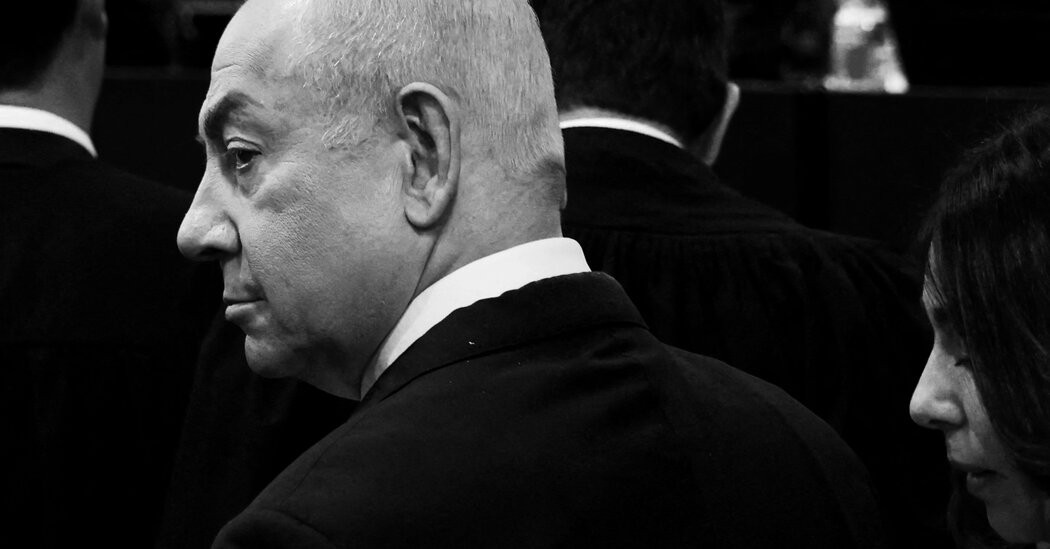

Just before Thanksgiving, the International Criminal Court in The Hague issued an unusual set of arrest warrants: one for Prime Minister Benjamin Netanyahu of Israel, one for his former defense minister Yoav Gallant and one for the deceased Hamas military chief Muhammad Deif. Each man is accused of crimes against humanity and war crimes related to the ongoing conflict in Gaza.
The warrant for Mr. Netanyahu calls for any of the 124 countries that are signatories to the I.C.C. to arrest the Israeli leader should he arrive on their soil. And yet in Israel, the threat has made only the barest ripple on the domestic front. Israelis seemed far more concerned by how, more than two weeks earlier, on the night of the American election, Mr. Netanyahu took advantage of a distracted Washington and fired Mr. Gallant, the last remaining political centrist in his cabinet. Thousands of Israeli protesters took to the streets over the dismissal, blocking a major highway in Tel Aviv with bonfires and shouting, “Bibi is a traitor!”
The protests weren’t just about Mr. Gallant, or even the kind of war he led as defense minister. They were about Mr. Netanyahu himself, a man who has overtly put his own political survival above his nation again and again. Over the past year, Mr. Netanyahu has risen, phoenixlike, from the political ashes of the nation’s greatest security failure on Oct. 7, 2023, to become a bolder, more aggressive version of himself — a man willing to ignore longtime allies, including many American Jews, brush off international opprobrium and shed a long history of war skepticism in favor of a full-blown, multifront regional war. Hamas, Hezbollah and Syria are now badly damaged. The last (original) man standing is Mr. Netanyahu, something few would have predicted one year ago.
Mr. Netanyahu managed to wait out the Biden administration’s unsuccessful efforts to bring an end to the war in Gaza, bring home the hostages and curtail civilians’ bloodshed. With Donald Trump poised to re-enter the White House, ushering in a slate of new regional envoys who show no interest in limiting Israel, it seems Mr. Netanyahu’s gamble has paid off. Even finally being forced to take the witness stand in his trial for corruption, which began this month, does not seem to have dimmed his political power — as shown in recent polls.
The Israeli prime minister’s endurance can be traced back to several political factors, including a decade of echo-chamber building within Israeli media and Bibi’s own sophisticated and cynical exploitation of Israelis’ deep yearning for unity after Oct. 7. But perhaps the strongest force keeping Mr. Netanyahu in power is the most basic: his fractured, increasingly nonexistent opposition. The vast majority of those who loathe him as a leader do not oppose the war itself, nor the way it has been conducted. They want him out of power but they have no coherent alternative vision. For the past year, all Mr. Netanyahu has had to do was hold on to power — and pass the blame.
Since Oct. 7, Mr. Netanyahu and his inner circle of advisers, ministers and supporters have successfully deflected their own responsibility and culpability for the nation’s worst security breach in its 76-year history. A day after the Hamas attacks, some Netanyahu supporters started planting the idea within his political base that the catastrophic security failure that led to Hamas’s murder of more than 1,200 people was the fault of his opponents. Over the course of the year before, tens of thousands of protesters had taken to the streets to reject the prime minister’s efforts to meddle with the independence of the judiciary and threaten to stop volunteering for military reserve duty if the judicial overhaul bills he was proposing were approved. Social media users floated gross conspiracies about anti-Netanyahu military officials assisting Hamas.



